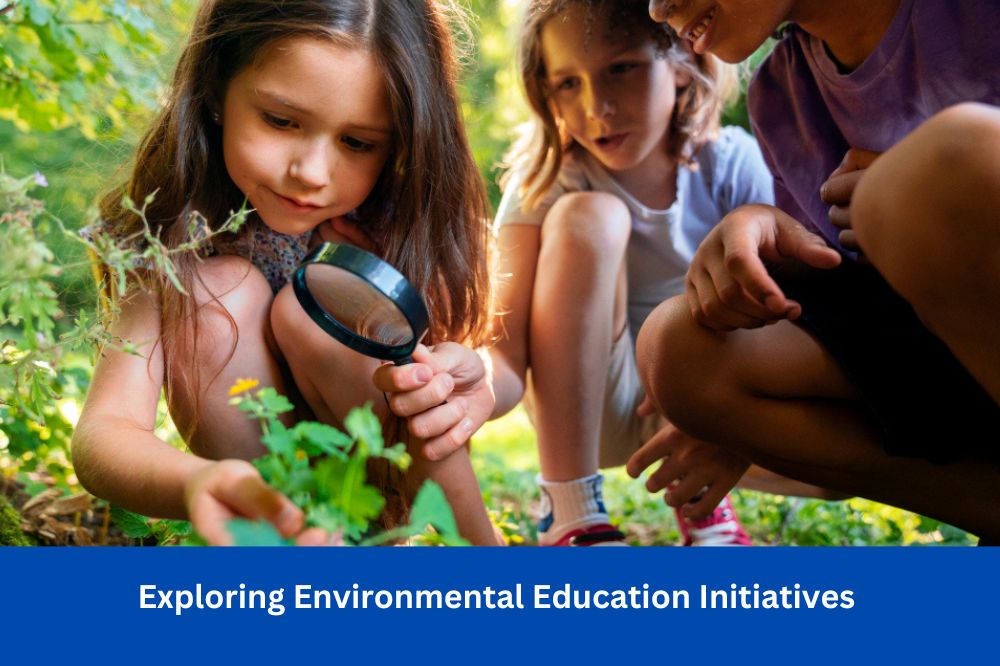Introduction
Environmental education has become increasingly imperative in today’s world, given the pressing challenges of climate change, biodiversity loss, and environmental degradation. Banyan Tree School (BTS) in Chandigarh stands at the forefront of fostering environmental consciousness and sustainable practices among its students. This article delves into the comprehensive environmental education initiatives undertaken by BTS, drawing insights from collaboration with Other Best CBSE schools in Chandigarh to provide a holistic understanding of their collective efforts in promoting environmental stewardship.
The Significance of Environmental Education
Environmental education encompasses a broad range of knowledge, skills, attitudes, and values aimed at fostering ecological literacy and responsible citizenship. It empowers individuals to understand the interdependence between humans and the environment, recognize environmental challenges, and take informed action to address them. In an era marked by environmental crises, integrating environmental education into the curriculum is crucial for cultivating environmentally conscious and environmentally responsible citizens.
Environmental Education Initiatives
The School is committed to instilling environmental consciousness and sustainability principles in its students through a multifaceted approach to environmental education. The school’s initiatives encompass various aspects, including curriculum integration, experiential learning, community engagement, and infrastructure development.
- Curriculum Integration: It incorporates environmental education across disciplines, infusing environmental concepts and issues into the curriculum at all grade levels. From science and geography to social studies and language arts, students explore topics such as ecosystems, climate change, conservation, and sustainable development. By embedding environmental education into core subjects, it also ensures that students develop a comprehensive understanding of environmental issues and their interconnectedness with other areas of study.
- Experiential Learning: It emphasizes hands-on, experiential learning opportunities to deepen students’ engagement with environmental concepts and foster a sense of connection to nature. Field trips to local parks, nature reserves, and ecological sites allow students to observe biodiversity firsthand, conduct field studies, and appreciate the importance of conservation efforts. Additionally, the school encourages outdoor learning activities, such as gardening, composting, and tree planting, to promote environmental stewardship and sustainable practices.
- Community Engagement: The School actively involves students in community-based environmental initiatives, forging partnerships with local organizations, government agencies, and environmental NGOs. Through collaborative projects such as waste management drives, tree-planting campaigns, and clean-up efforts, students gain practical experience in environmental conservation and civic engagement. These activities not only benefit the local community but also instill a sense of responsibility and empowerment among students to effect positive change in their surroundings.
- Infrastructure Development: It is committed to sustainability not only in its curriculum but also in its infrastructure and operations. The school has implemented various eco-friendly measures, such as rainwater harvesting systems, solar panels, energy-efficient lighting, and waste segregation facilities. By modeling sustainable practices within the school environment, it not only reduces its ecological footprint but also serves as a living laboratory for students to learn about sustainable technologies and resource management firsthand.
Collaboration with Top CBSE Schools in Chandigarh
The school amplifies its impact and shares best practices in environmental education. Through collaborative initiatives and knowledge-sharing platforms, educators exchange ideas, resources, and experiences to enhance environmental education efforts across schools. Some collaborative endeavors include:
- Inter-School Workshops and Seminars: BTS with other CBSE schools in Chandigarh organize workshops and seminars on environmental education, inviting expert speakers, conducting interactive sessions, and sharing innovative teaching methodologies. These events provide educators with professional development opportunities and inspire them to integrate new approaches to environmental education into their respective schools’ curricula.
- Joint Environmental Projects: BTS collaborates with other CBSE schools on joint environmental projects, such as creating school gardens, organizing eco-fairs, or implementing recycling initiatives. By pooling resources and expertise, schools can undertake larger-scale projects that have a more significant impact on environmental awareness and sustainability within the community.
- Student Exchanges and Competitions: The school also participates in student exchanges and competitions with other CBSE schools focused on environmental themes. These exchanges allow students to interact with peers from different schools, share perspectives on environmental issues, and collaborate on creative solutions. Competitions such as eco-debates, eco-art contests, and environmental film festivals encourage students to express their environmental concerns and solutions creatively.
Lessons from Collaboration
Through collaboration with other Top CBSE schools in Chandigarh, the school gains valuable insights and experiences that enrich its environmental education initiatives. By learning from each other’s successes and challenges, schools can collectively advance environmental education and sustainability practices in the region. Key lessons learned include:
- The Power of Collaboration: Collaborative efforts amplify the impact of environmental education initiatives by leveraging collective resources, expertise, and networks. By working together, schools can achieve more significant results than they could individually, fostering a culture of collaboration and mutual support.
- Innovative Approaches: Collaborating schools exchange innovative approaches to environmental education, inspiring each other to experiment with new teaching methods, interdisciplinary connections, and community engagement strategies. By embracing innovation and sharing best practices, schools can continuously improve their environmental education efforts and adapt to evolving needs and challenges.
- Community Engagement: Collaboration facilitates deeper community engagement by forging partnerships with local stakeholders, government agencies, and environmental organizations. By involving the community in environmental education initiatives, schools can create meaningful learning experiences that have a lasting impact on students and the broader community.
Conclusion
In conclusion, environmental education is essential for equipping students with the knowledge, skills, and values needed to address pressing environmental challenges and build a sustainable future. Banyan Tree School, in collaboration with Other Top CBSE Schools in Chandigarh, exemplifies a comprehensive approach to environmental education that integrates curriculum integration, experiential learning, community engagement, and infrastructure development. Through collaboration, schools can amplify their impact, share best practices, and inspire each other to advance environmental education and sustainability efforts. By nurturing environmentally conscious and responsible citizens, schools play a vital role in fostering a culture of environmental stewardship and collective action for a healthier planet.

